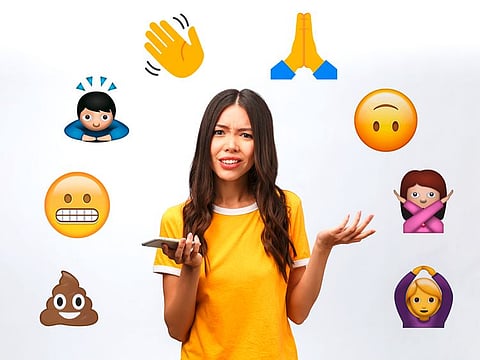A shift in our imagination and communication
How “written word” has been largely replaced by the “typed word”

We live in very different times. Even our very recent ancestors, did not enjoy the luxury of emoticons to express their sentiment in the written word. They had to depend entirely upon their writing prowess to communicate unambiguously.
One could not leave anything to the readers’ imagination lest it led to miscommunication. There has been a radical shift in our mode of communication and the “written word” has been largely replaced by the “typed word”, which itself has had to face the grave ignominy of being reduced to crude abbreviations.
As if “Gr8” (great) was not grating enough, the quality truly tanked with ubiquitous “Tks” (Thanks). This steep devaluation of the “word” has been further aggravated by arrival of the Emoji.
My children believe that my poor assimilation of communication-tech is attributable to my upbringing in times when many an innocent childhood were wasted on needless emphasis on writing.
Not only was it a criminal waste of paper, ink and time but also scarred a young mind with vagaries of grammar. No amount of verbosity, metaphorising and exquisite grammar could convey the true message as well as a simple emoji does.
Now, with my inherent limitations and a scarred mind, taking to Emojis in my e-communication has been a veritable challenge. The challenge is not that I can’t punch an emoji, but really the meanings that over thirty different smiling emojis convey.
The most basic “smile” is, well, just a basic smile with round eyes and visible upper incisors with a hint of the tongue. Matters complicate instantly when the very next “smile” has eyes suffering a vertical elongation with earlier oral attributes.
Grappling with multiple shades
Smiles confound further, as further down the list the lower incisors make an appearance at the cost of the hint of tongue. This is followed by the eyes being replaced by a frankly convergent squint.
While I was still grappling with multiple shades of “smiles” and their meanings, when the “smiles” began to hydrate and a unilateral drop of aqua blue made an appearance. While this dew drop was on the right, the next one had 2 of them with brows making their maiden appearance, exacerbating complexity.
As I struggled to comprehend eyes, teeth and dew drops and their influence on pictorial smiles, there sneaked in rosy cheeks and shady haloes on the cranium. To make matters worse, another extremely contentious symbolism manifested in form of red-hearts and blown kisses. Even most vapid readers will agree these additions impart a different meaning to any smile.
Such emojis ran a distinct risk of provoking an intense reaction from recipient of the opposite gender, particularly if he/she was not favourably inclined. In “written word” one always has the leeway to hide behind probable misinterpretation but this explicit emoji was a frank invitation to a retribution.
Gravity of grief
There were equally myriad representations for unhappiness/grief/anger with reverse-smile being the general commonality. My reading was that the scale of convexity was directly proportional to the gravity of grief. There was greater use of brows to underscore the degree of misery, dew drops were replaced by bilateral torrents and the colour red found greater usage.
The creator’s imagination had really run amok as I grappled to precisely interpret blowing nostrils, a protruding nose, zipped lips and even feline outlines. There were foot marks, a lone tooth, a skeletal lower limb, a hyper-trichotic ear among numerous others.
I always found it perplexing to accurately describe my feelings with such abstract depictions. In the interest of brevity I will refrain from commenting on escalating complexity and obtuse messaging as I examined multitudes of more emojis.
Not surprisingly, my children were greatly amused with my struggle as I painstakingly worded my thoughts on social media while they merrily splashed banal emojis in their conversations.
My wife saw through my plight and politely told me to stop ranting. My problem was, she said, that I lacked EMOJINATION.
Dr Rakesh Maggon is a Dubai-based specialist ophthalmologist with an interest in literature







